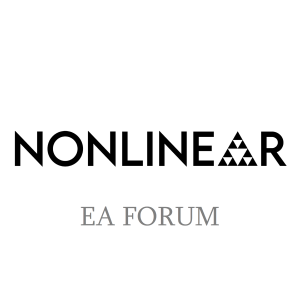
The Nonlinear Library: EA Forum
Education

EA - Why EA should (probably) fund ceramic water filters by Bernardo Baron
 2024-01-03
2024-01-03
Welcome to The Nonlinear Library, where we use Text-to-Speech software to convert the best writing from the Rationalist and EA communities into audio. This is: Why EA should (probably) fund ceramic water filters, published by Bernardo Baron on January 3, 2024 on The Effective Altruism Forum.Epistemic status: after researching for more than 80 hours each, we are moderately certain that ceramic filters (CFs) can be more cost-effective than chlorination to prevent waterborne diseases at least in some - and possibly in many - LMICs. We are less certain of the real size of the effects from CFs, and how some factors like household sizes affect the final cost-effectiveness.At least 1.7 billion people globally used drinking water sources contaminated with feces in 2022, leading to significant health risks from waterborne enteric infections. According to the Global Burden of Disease (GBD) 2019 study, more than 2.5% of total DALYs lost that year were linked to unsafe water consumption - and there is some evidence that this burden can be even bigger.This makes the improvement of access to clean water a particularly pressing problem in the Global Health and Development area.As a contribution to target this problem, we have put together a report on ceramic water filters as a potential intervention to improve access to safe water in low and medium income countries. This was written during our time as research fellows at Charity Entrepreneurship's Research Training Program (Fall 2023).In this post, we summarize the main findings of the report. Nonetheless, we invite people interested in the subject to check out the full report, which provides much more detail into each topic we outline here.Key takeaways:There are several (controlled, peer-reviewed) studies that link the distribution of ceramic filters to less frequent episodes of diarrhea in LMICs. Those studies have been systematically reviewed and graded low to medium quality.Existing evidence supports the hypothesis that ceramic filters are even more effective than chlorination to reduce diarrhea episodes. However, percentage reductions here should be taken with a grain of salt due to lack of masking and self-report and publication biases.Despite limitations in current evidence, we are cautiously optimistic that ceramic filters can be more cost-effective than chlorination, especially in countries where diarrheal diseases are primarily caused by bacteria and protozoa (and not by viruses). Average household sizes can also play a role, but we are less certain on the extent to which this is true.We provide a Geographic Weighted Factor Model and a country-specific back-of-the envelope analysis of the cost-effectiveness for a hypothetical charity that wants to distribute free ceramic filters in LMICs. Our central scenario for the cost-effectiveness of the intervention in the top prioritized country (Nigeria) is $8.47 U.S. dollars per DALY-averted.We ultimately recommend that EA donors and meta-organizations should invest at least some resources in the distribution of ceramic filters, either by bringing up new charities in this area, or by supporting existing, non-EA organizations that already have lots of expertise in how to manufacture, distribute and monitor the usage of the filters.Why ceramic filters?There are plenty of methods to provide access to safe(r) water in very low-resource settings. Each one of those has some pros and cons, but ceramic filters stand out for being cheap to make, easy to install and operate, effective at improving health, and durable (they are said to last for a minimum of 2 years).In short, a ceramic filter is a combination of a porous ceramic element and a recipient for the filtered water (usually made of plastic). Water is manually put into the ceramic part and flows through its pores due to gravity. Since pores are very small, they let water pass, but physically block bigger particles - including bacteria, protozoa and sediments - from passing....
More Episodes
Create your
podcast in
minutes
- Full-featured podcast site
- Unlimited storage and bandwidth
- Comprehensive podcast stats
- Distribute to Apple Podcasts, Spotify, and more
- Make money with your podcast
It is Free
- Privacy Policy
- Cookie Policy
- Terms of Use
- Consent Preferences
- Copyright © 2015-2024 Podbean.com





